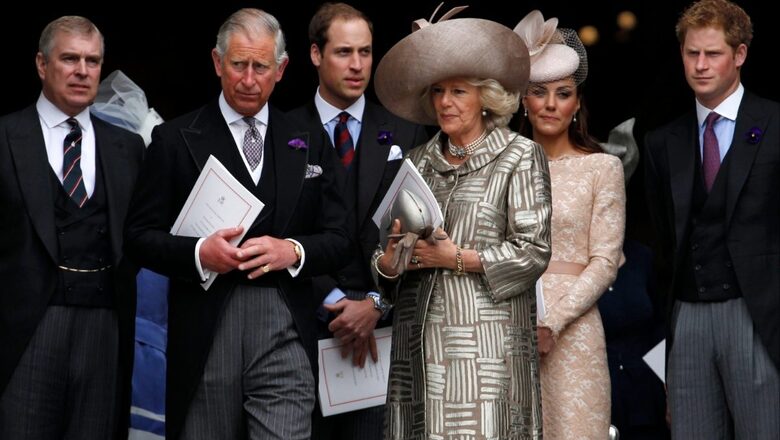
views
With King Charles III diagnosed with cancer, the immediate question that comes to mind who will be the next in charge if the monarch is unable to fulfil his constitutional duties.
Buckingham Palace, however, has issued a statement, saying King Charles will continue to perform formal constitutional affairs of state, the paperwork and private meetings such as weekly meetings with Prime Minister Rishi Sunak.
While there are reports that quote health experts and Toronto-based royal author, Carolyn Harris, who say that the King has been advised by his medical team to avoid public meetings and engagements during the course of the treatment.
King Charles’ news comes as his daughter-in-law and Princess of Wales, Catherine, recovers from an abdominal surgery last month. She may not resume public appearances until Easter. In this situation, other members of the Royal Family will have a larger role to play in the public eye.
Let’s see what could other members of the Royal Family, thus, Counsellors of State, can perform while King Charles, 75, may be temporarily discharged from making public appearances.
Focus on Prince William
King Charles’ eldest son and heir to the throne, Prince William, and Queen Camilla, can perform royal exercises such as jointly assent to laws, receiving ambassadors and holding Privy Councils. While they may carry out most of the sovereign’s functions while he is ill, but they cannot dissolve Parliament, except on his instruction.
Prince Harry, however, is exempt from performing any such duty as he lives outside of the UK, in California.
It should be noted that the Counsellors of State have previously performed royal functions when King Charles was travelling overseas.
Prince William, 41, will reward some of the members of the public with special honours on behalf of the King in Windsor on February 7. He will be seen in public after he took a month’s off for his wife’s, Catherine, surgery, and to take care of his three children, Prince George, Princess Charlotte, and Prince Louis.
Counsellors of State were appointed when Charles’ mother, Queen Elizabeth, was on an overseas visit.
Regency
The role of a regent comes into play if the King is “by reason of infirmity of mind or body incapable for the time being of performing the royal functions”. In this case, Prince William will assume this role as he is the next adult (older than 21 years) in the line of succession to the Crown.
The Regent enjoys the power of the King, but cannot change the order of succession to the Crown.
What about Abdication?
When King Edward VIII abdicated in 1936 by signed ‘instrument of abdication’ and the enactment of legislation, its effects were seen in different realms, including Australia. In the present circumstance, however, this rule is not applicable considering the constitutional hotchpotch it would create in the 14 realms beyond the United Kingdom.
For example, if King Charles were to abdicate now, he will not be able to appoint a new Governor-General in Australia, and current Governor-General David Hurley will continue in office till no formal termination of his role.
Impact on UK Government?
While the monarch’s role is largely symbolic in the UK, he has a few responsibilities in the government. He is expected to formally approve the piece of legislation passed in Parliament, he can dissolve Parliament after a general election, and meet the Prime Minister every week to discuss the current government affairs.
According to the royal family website, King Charles generally “[acts] as a focus for national identity, unity and pride; gives a sense of stability and continuity; officially recognizes success and excellence; and supports the ideal of voluntary service.”


















Comments
0 comment